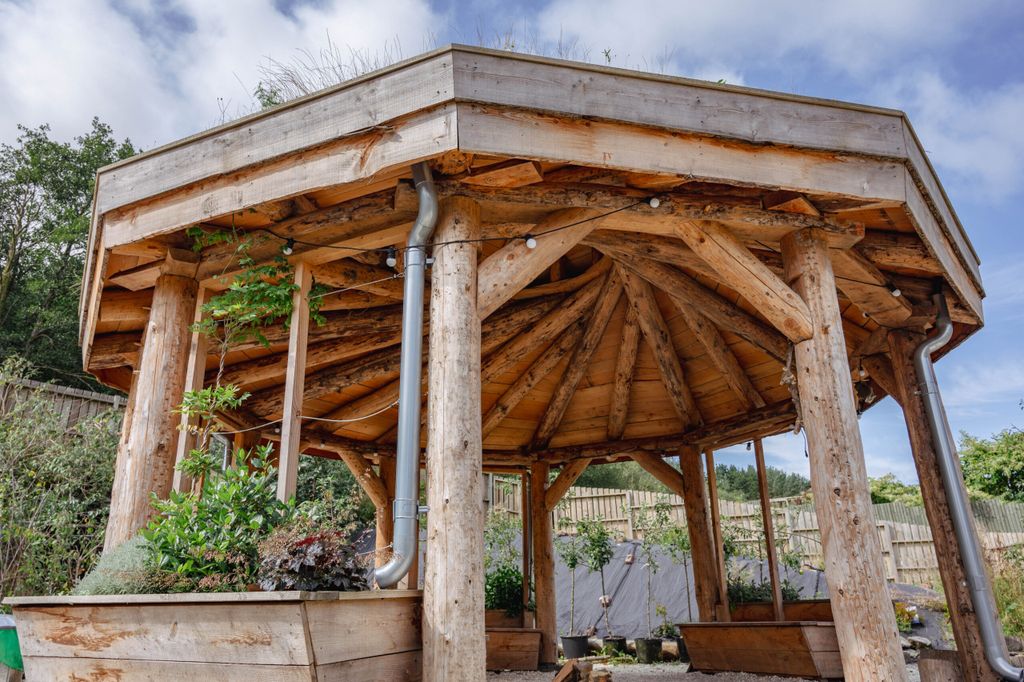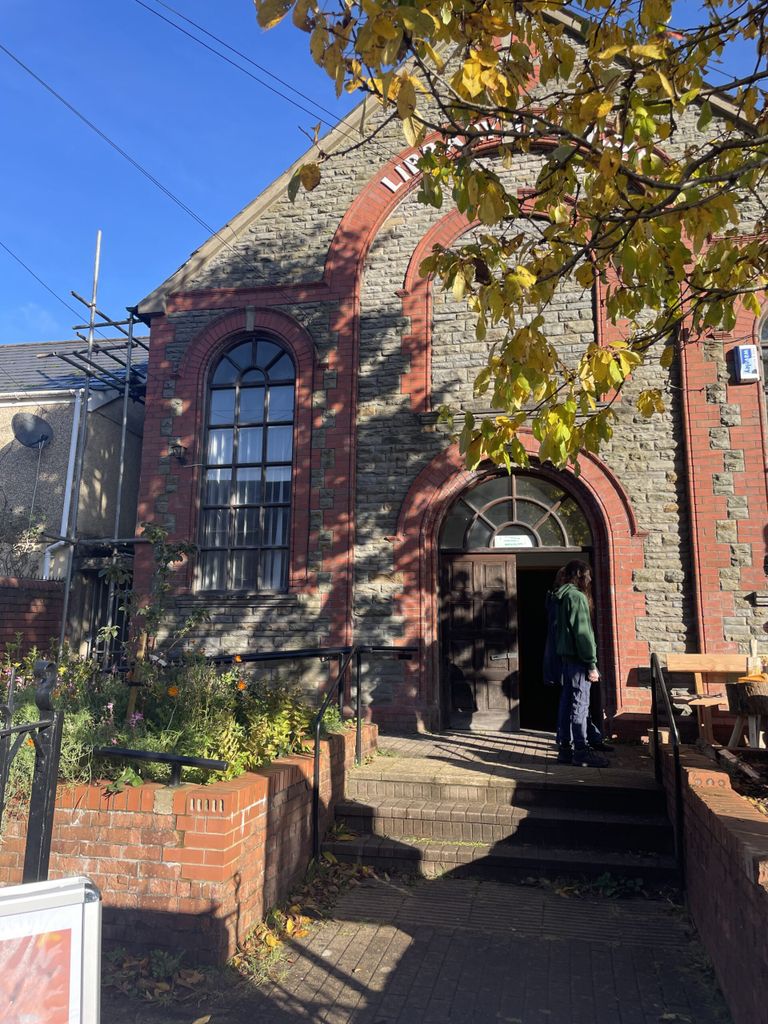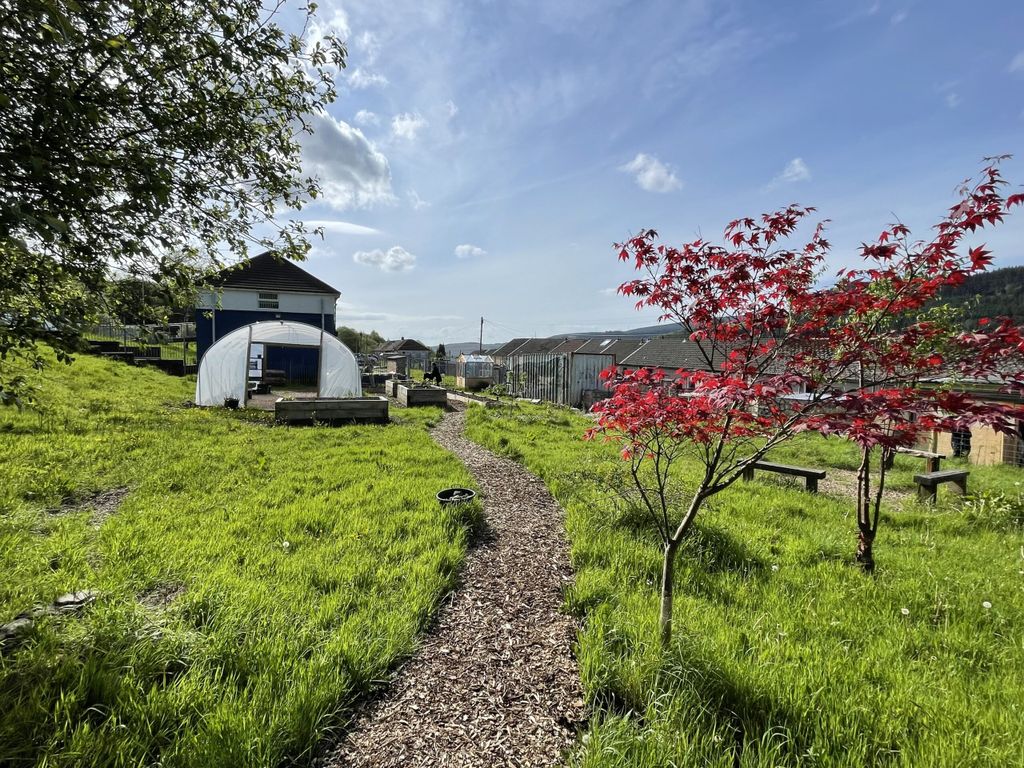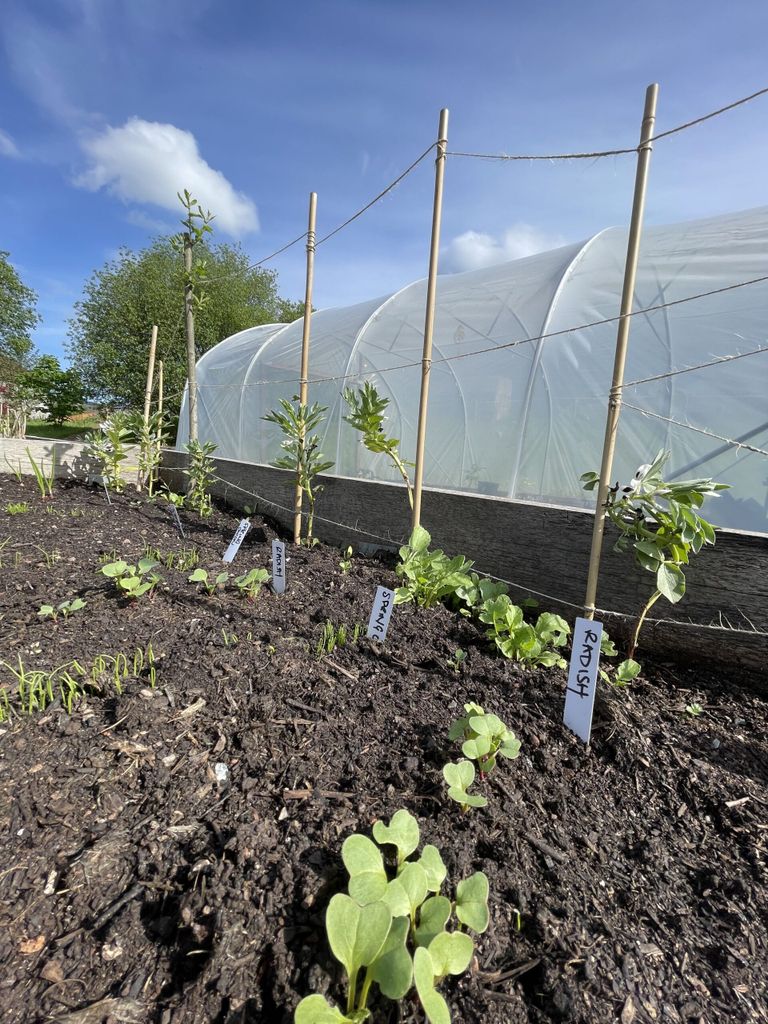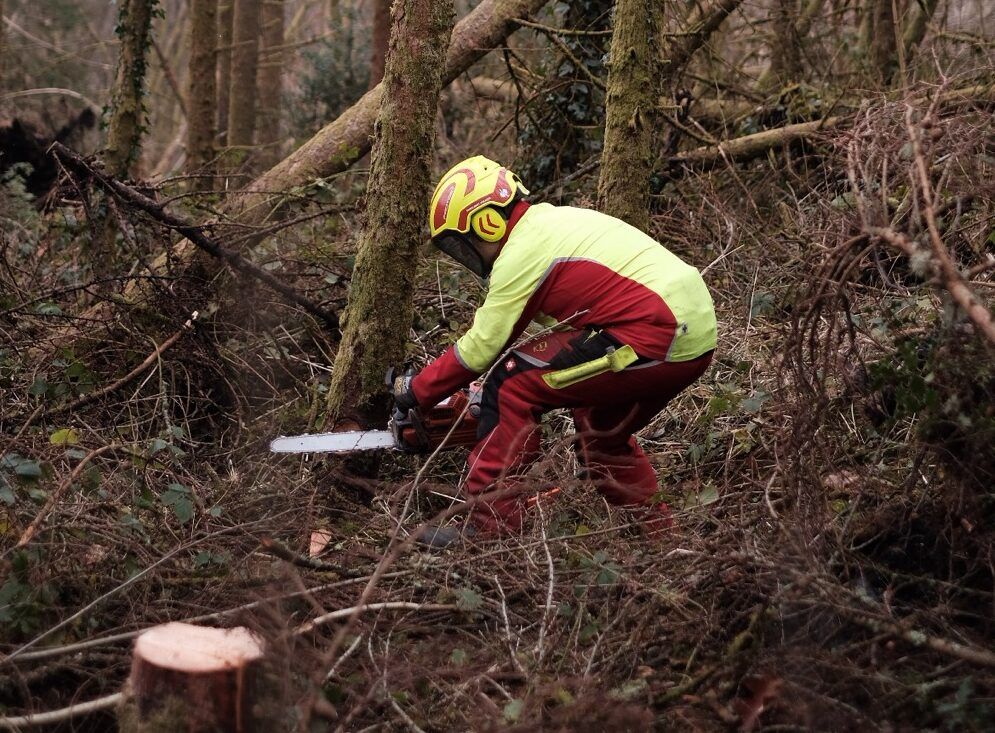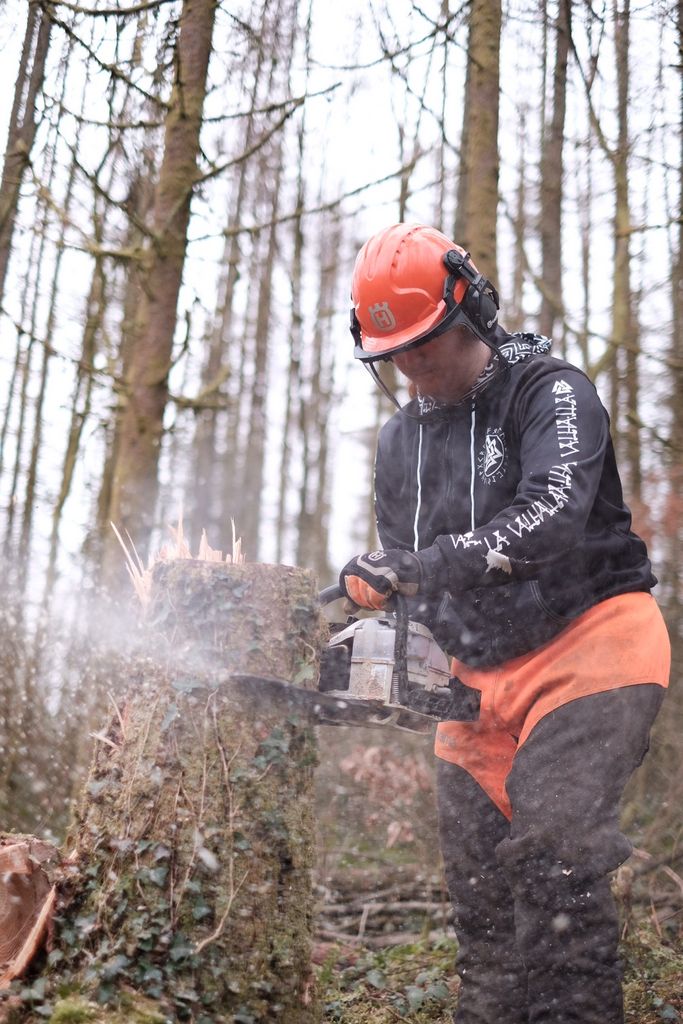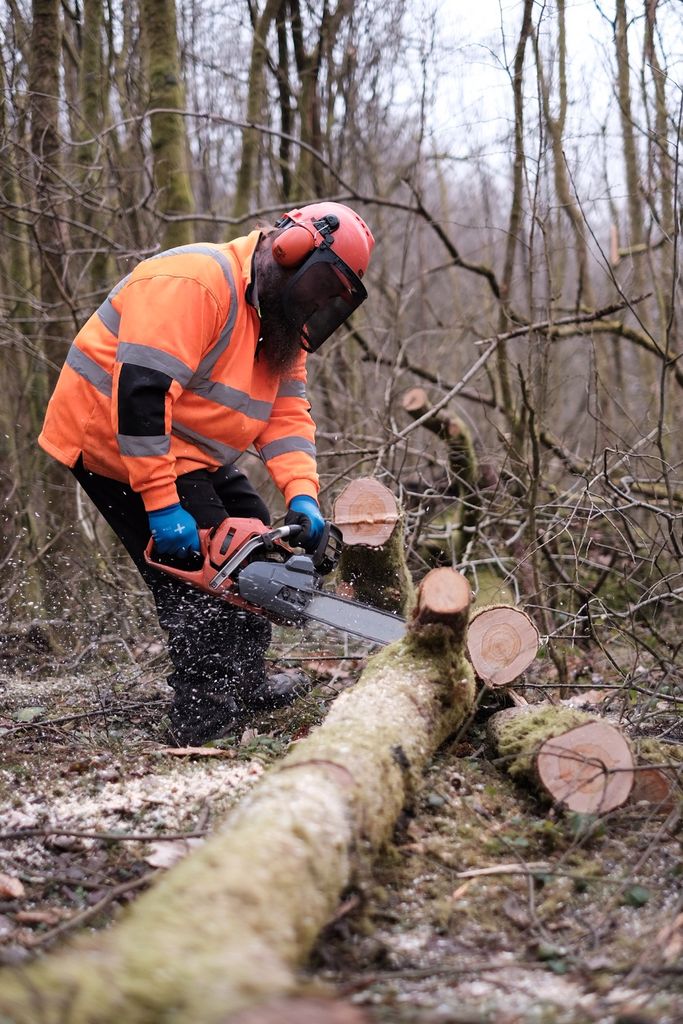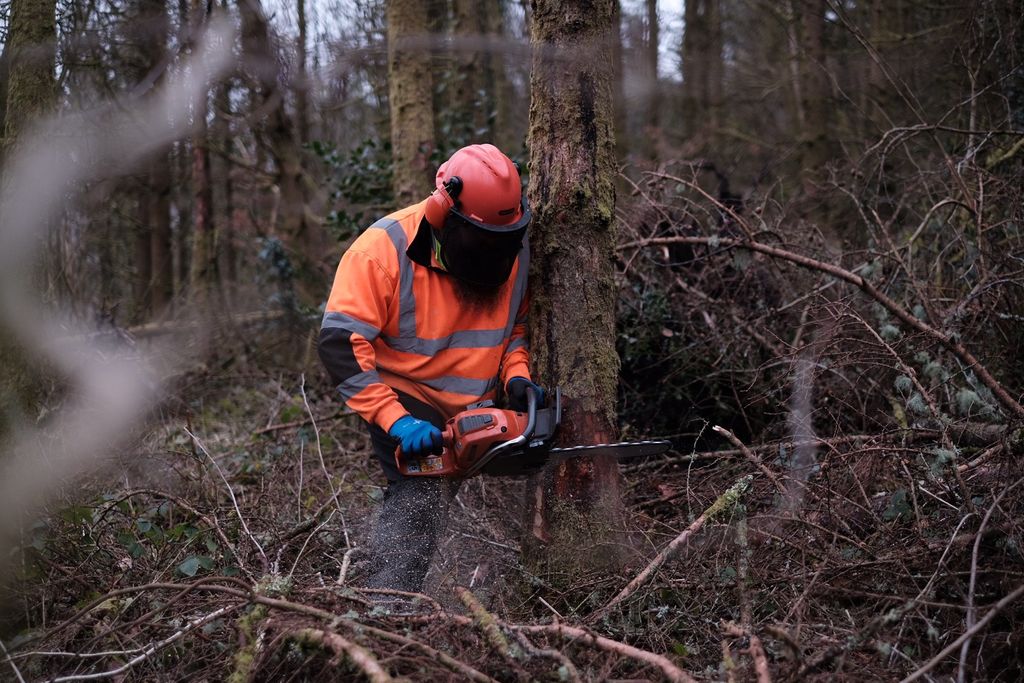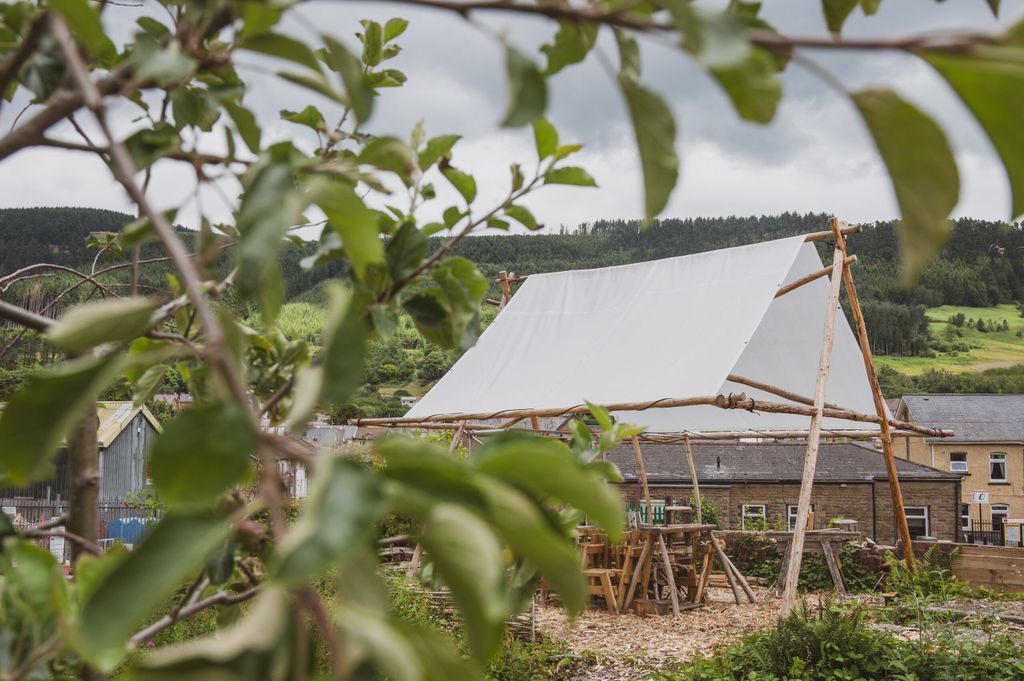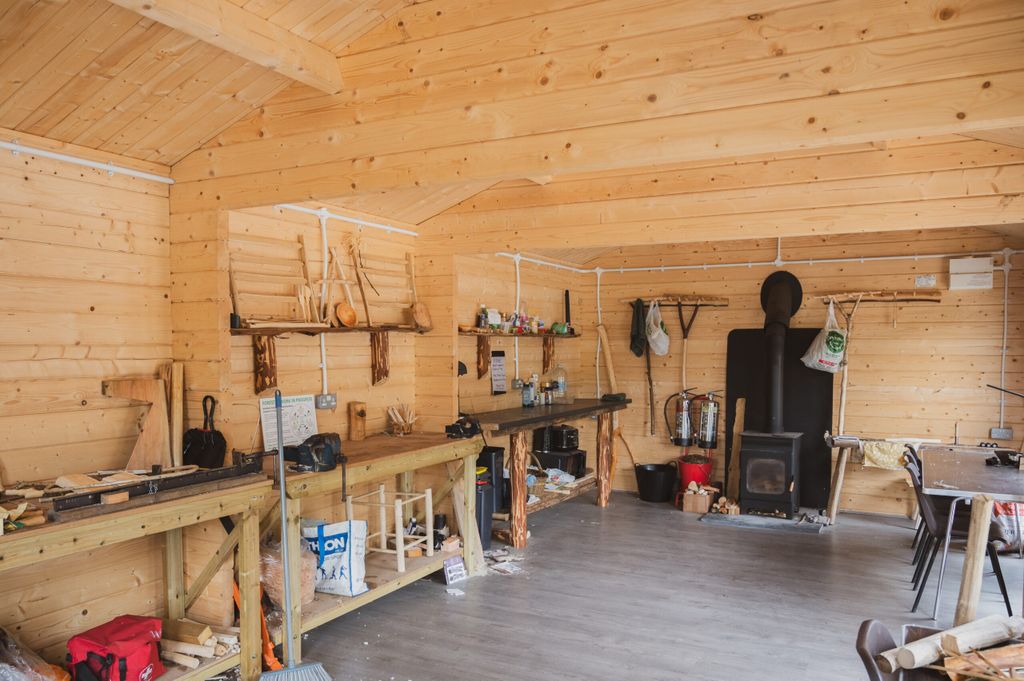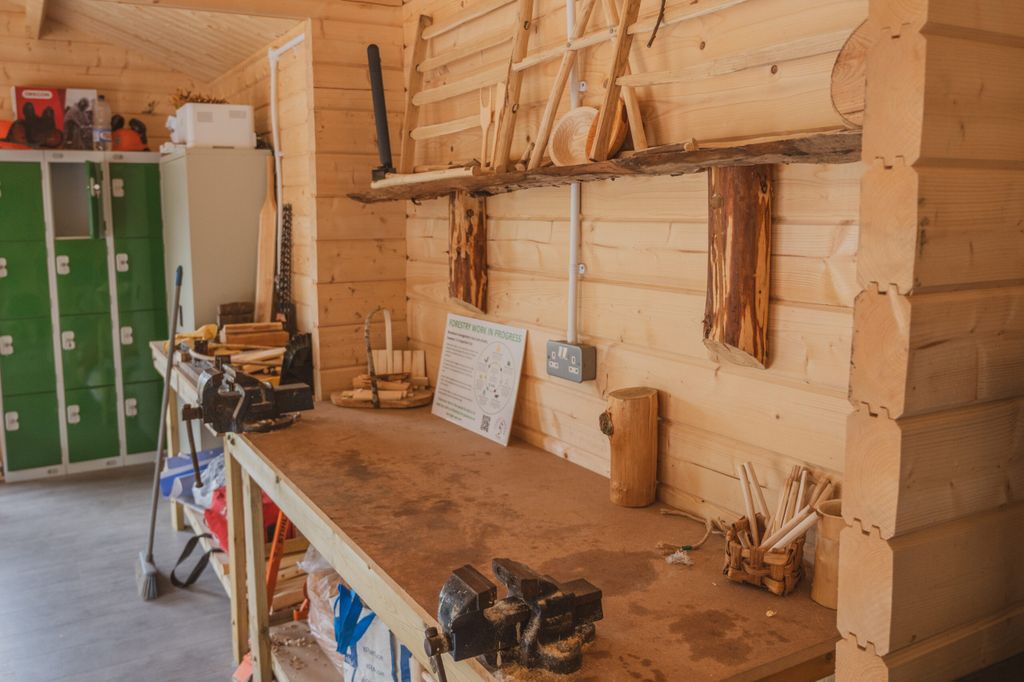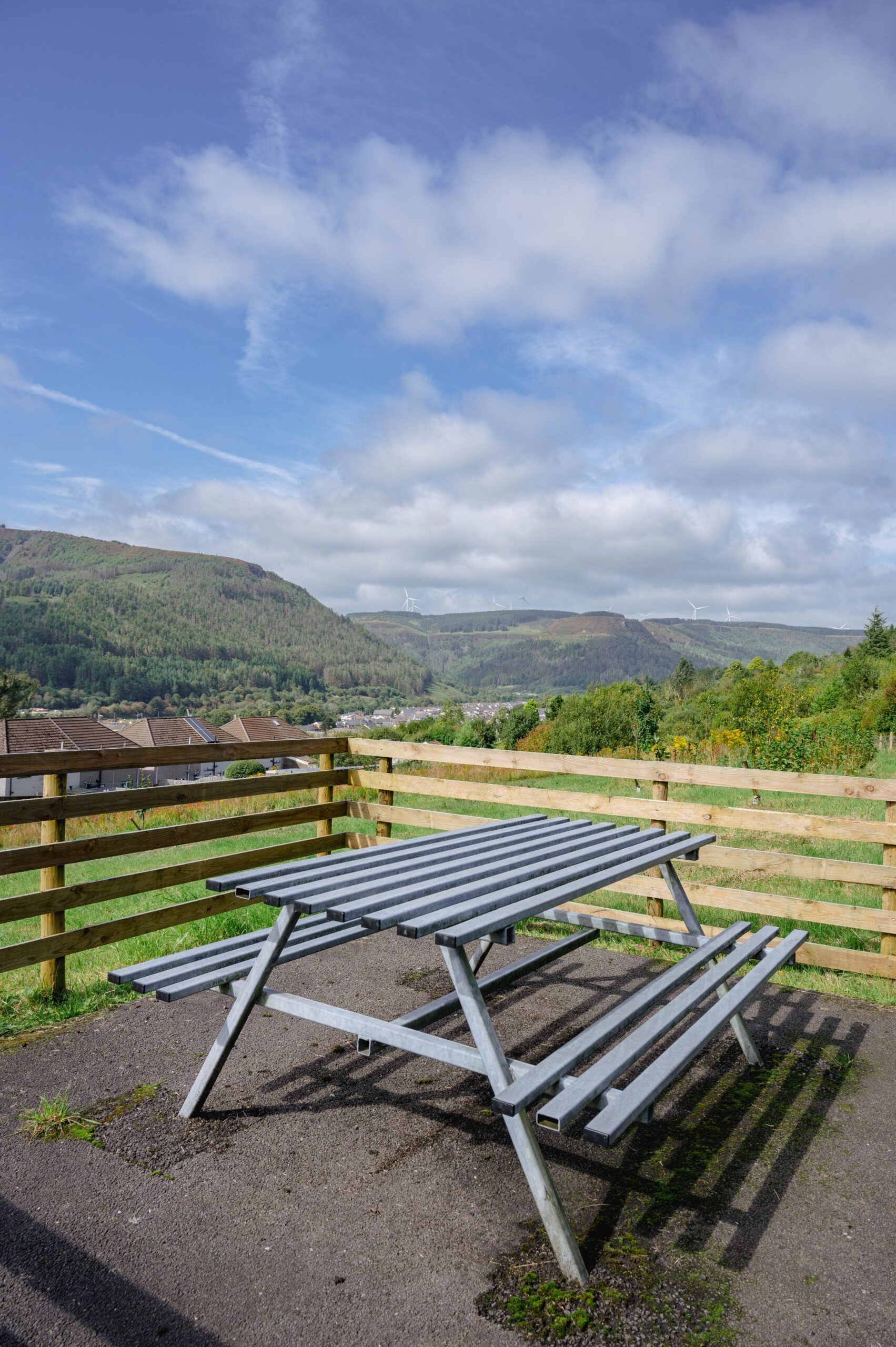
Treherbert Campus
treherbert, rhondda cynon taff
Our newest campus is located in Treherbert – situated at the top of the Rhondda Fawr valley, Treherbert is a village overlooked by the spectacular flat-headed spur mountain, Pen Pych. The village is on the southern boundary of the Bannau Brycheiniog National Park. Since the 1970s the spoil heaps in the area have been colonised by trees which has created a rich new woodland.
expansion
in treherbert
We were excited to partner trail-blazing community group Welcome to Our Woods last year, and in September 2023 we launched Level 2 courses at our Treherbert location.
Our further education expansion in Treherbert is a part of a pioneering community project under the headline ‘Project Skyline’ that began as a community consultation on managing the re-forested spoil heaps around the former mining town. We partnered up to train the local community to grow food and manage the woodlands as part of a larger Lottery Climate Action Fund bid with multiple partners.
Demand for courses in Treherbert is growing; students are predominantly coming from within the Rhondda Valley, with an increasing number of applicants from those in the wider valleys area and Cardiff.
BMC now also has a lease on the Treherbert Education Centre (former Youth Centre) from RCT Council under a Community Asset Transfer process. Engaging with the community, we are committed to co-develop plans to retrofit the centre to create classrooms and workshop space with community access. The vision for the new education centre is to provide accessible learning and training opportunities, particularly focused on sustainability, land skills and local job creation. The consultation is open until March 2026 and all feedback will be shared with architects, Down to Earth, as part of the next stage of project development.
learning sites
Our further education courses at Treherbert are taught at various locations across the village in a distributed campus model. We are still developing some areas, but our current facilities and locations for lessons include:
The Old Library, in the village centre.
A multi-use open space venue, used for some indoor sessions.
Penyrenglyn Project Community and Family Site
Nature Restoration & Change in Practice sessions are taught here. The building has indoor learning space and students have access to the surrounding community gardens which have a polytunnel, potting shed and raised beds.
Cwm Saerbren Woods
Students have established a coppicing site and outdoor learning takes place here.
Community Orchard Space near the Penyrenglyn Project
Students have been working in partnership with the community to develop this.
The Old Brewery site
An area that is currently in development with Welcome to our Woods and Down to Earth but is used for student, social and community events at the moment, with a workshop/cabin as a woodworking studio, and a covered outdoor woodworking space. Forestry & Arboriculture is taught here.
Roundhouse at the Old Brewery Site
Our students contributed towards building this, which is used occasionally as a social space for BMC students but more regularly utilised for other Welcome to our Woods events and courses such as Woodland Therapy sessions!
The amount of time spent at each of the above locations varies.
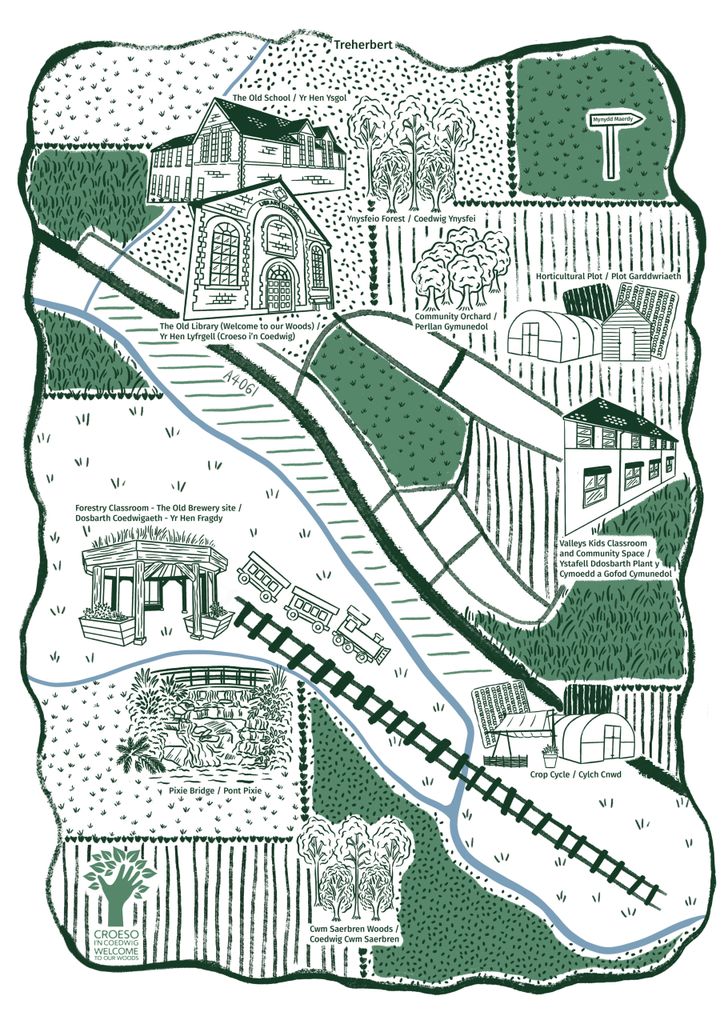
Community based learning
Our learning is embedded within the local community, a significant objective of the project, so that the learning will have positive social and ecological outcomes too. This makes the training we provide meaningful and urgent, and the lessons learned durable and transferable.
BMC is integral in providing education and training for people within the area and beyond, which will in turn allow the Skyline vision to materialise. We need to teach people how to manage land sustainably, how to provide for themselves, how to make use of the Earth’s natural materials to our benefit in a viable manner, how to grow food, how to manage the local woodlands and restore nature, and how to ensure there is a future for the generations to come..
what is
project skyline?
Project Skyline has been in the works for the past few years, and the overall aim is to give local people the means to shape their own environment.. Not in a fragmented approach, and not a small patch of land just for a few years, but providing hundreds of hectares to locals for use for hundreds of years – to the “skyline”.
Project Skyline looks to offer local communities the chance to see their values and visions for the future reflected in the way land that surrounds them is managed. The initial feasibility work identified what a community might choose to do with land if they could plan for many years to come.. would they create jobs from forestry? Support small-holdings or food projects? Improve public access? Support wildlife? Or a combination of these ideas? This work was completed in 2019 with funding from the Friends Provident Foundation. You can read the full Skyline Feasibility Report.
Skyline is about land, people and imagination.
The Skyline project seeks to reconnect communities in the South Wales Valleys with the landscape that surrounds the town and aligns greatly with BMC’s vision – imagining a different future! Imagine a future in which land is managed sustainably to meet the needs of the people who live there in a way that doesn’t compromise the ability of future generations to meet their own needs. This also aligns with the Well-being of Future Generations (Wales) Act which requires public bodies in Wales to consider the long-term impact of their decisions, to work better with people, communities and each other, and to prevent persistent problems such as poverty, health inequalities and climate change.
Giving communities a connection to landscape can provide income, jobs, a place of social and cultural activity, and a home for nature. A psychological bond between community, economy and landscape is forged. It is a mistake to see these post-industrial landscapes as abandoned or of no ecological importance. The coal spoil sites are the home to species of conservation concern. There is the opportunity for land use change to provide spaces and projects for nature’s restoration.
reaching us
in treherbert
The best place to meet us is always The Old Library, Bute St, Treherbert, Treorchy CF42 5NR. Treherbert is around 30-minutes from Merthyr Tydfil, and around 1-hour from Cardiff, Newport and Swansea. Treherbert has strong public transport links via bus or train.
Treherbert has 1 direct rail link which runs to and from Cardiff. This line also runs through Treorchy, Tonypandy, Porth, Pontypridd, Trefforest, Taff’s Well, Radyr, Cathays and more. The train station is directly in front of our Brewery site classroom.
Treherbert has 3 direct bus links:
- Bus 120 – Blaencwm to Caerphilly. This bus goes via Rhydfelin and Nantgarw.
- Bus 121 Blaencwm to Tonypandy
- Bus 130 Blaencwm to Pontypridd. This bus goes via Blaenrhondda, Tonypandy and Porth.
Stagecoach offers a ‘28 Day MegaRider‘ deal which offers discounts for regular travellers.
Transport for Wales offers various Rail Cards which can provide discounts on train travel.
Read our student stories
Our students’ stories are a testament to personal transformation and impact. From mastering sustainable practices in regenerative horticulture to leading community-based conservation projects, each journey reflects a commitment to shaping a greener and more equitable future.
